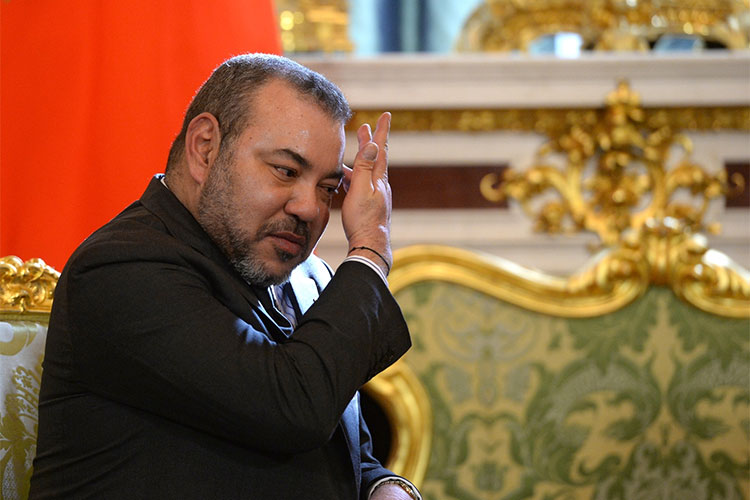Morocco’s Makhzen Regime Is In An Unprecedented Isolation In Africa and Internationally

The features of the undeclared deal between the Moroccan Makhzen regime and Spain began to become clear through the massacre of African immigrants on the walls of the occupied city of Melilla, at the hands of the Moroccan police and gendarmerie, before the eyes of the Spanish security services on “Black Friday”, which left in an infinite toll 23 dead. Hundreds of wounded, while other figures speak of 49 dead in the latest toll.
This “disgusting” deal requires that the Moroccan Makhzen regime play the role of the gendarme in confronting the “hapless African Ghalabi” of illegal immigrants, who are looking forward to the dream of crossing the Mediterranean Sea, towards the northern bank, where the chances of escaping poverty and misery are more, they believe, in exchange for changing the government Pedro Sanchez’s position on the Sahrawi issue serves the thesis of the Moroccan Makhzen regime regarding the occupied Western Sahara.
The features of this “stinking” deal are evident in how the Spanish government dealt with the “Melilla massacre”, which sought with all it could to clean the yard of the Makhzen regime from the abomination of this unprecedented scandal in dealing with defenseless and innocent immigrants, which did not happen even in Turkey, which harbored more than six million Syrians of various nationalities, not in Greece or Italy, and even in Hungary, where the extreme right holds the reins of power there.
The complicity of the Spanish government in the “Melilla massacre” can be seen in the statement issued by the Prime Minister of Madrid, Pedro Sanchez, who began accusing what he called “the Mafia” of masterminding what happened, without condemning the brutal treatment of the security services of the Makhzen regime before the eyes of their peers the Spaniards, with thousands of defenseless African immigrants.
But the government’s reaction came quickly, according to the second deputy head of the Spanish government, Minister of Labor and Social Economy, Yolanda Diaz, who called for “clarification of facts and respect for human rights”.
In a tweet to her via “Twitter”, Diaz said: “Very shocked by the pictures on the Melilla border, it is necessary to clarify what happened. I will always bet on immigration, and on a policy that respects human rights. No one should die like this unjustly”.
For his part, the Spanish politician, Pablo Ashnik, explained, via Twitter, that “the dead who fell victim in Melilla, if they were blond Europeans, there will be emergency meetings at the highest level, special television shows about their lives and families’ stories, and a complete break in relations with the state whose police action caused this hideous tragedy”.
After the scandal was revealed and its ugliness became apparent and turned into an issue of international public opinion, the African Union rushed to demand the opening of an “immediate investigation” into this heinous massacre, as the European Commissioner for Home Affairs, Ylva Johansson, described the events as a “tragedy”, and said that she was “extremely upset because of loss of human lives,” she also implicitly accused Rabat of using the illegal immigrants’ card to serve political agendas.
With the growing international pressure on the Moroccan Makhzen regime, demanding the opening of an immediate and in-depth investigation to determine the responsibilities, Rabat hastened to meet with the accredited representatives of the African diplomatic corps, to appeal to them to help the Makhzen overcome the crime it committed against innocent African immigrants, which would darken its image in the dark continent. At the time, it seeks to return to the African front, after he missed it for nearly three decades before 2017.
Officials at the Moroccan Makhzen Foreign Ministry urged the ambassadors of a number of African countries to make statements praising what they said was Rabat’s contribution to supporting African migrants at the Mohammed VI initiative, despite the innocent victims trying to infiltrate Melilla.
Among the ambassadors who tried to whiten the face of the gloomy Makhzen was the ambassador of Gabon and the charge d’affaires at the Embassy of the Union of the Comoros, which are countries known for their distinguished relations with the Makhzen regime and are counted on the fingers of one hand, while the rest of the countries of the brown continent, which exceed fifty countries, have fallen behind, which means that Morocco’s Makhzen regime has become more isolated because of its horrendous crime in the Melilla massacre.







